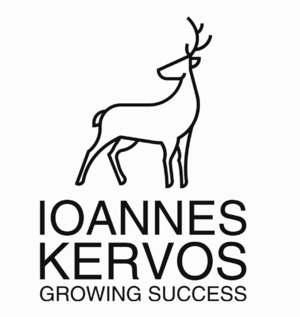Ioannes Kervos: Difference between revisions
No edit summary |
No edit summary |
||
| Line 15: | Line 15: | ||
| ISIN = | | ISIN = | ||
| ISIN2 = | | ISIN2 = | ||
| industry = {{wp|Agricultural machinery}} {{wp|Heavy equipment}} | | industry = {{wp|Agricultural machinery}}, {{wp|Heavy equipment}} | ||
| founded = 1853 | | founded = 1853 | ||
| hq_location = | | hq_location = | ||
Latest revision as of 21:46, 27 November 2023
 | |
Formerly | Kervos & Company |
|---|---|
| Private | |
| Industry | Agricultural machinery, Heavy equipment |
| Founded | 1853 |
| Headquarters | Oenipons , |
Area served | Europa, Argis |
Key people | Nikolaos Kervos (Chairman, CEO & President) |
| Products | Tractors, Combine harvesters, Forage harvesters, Seed drills, Field sprayers, Telescopic handlers, Backhoes, Excavators, Graders, Fell bunchers, Diesel engines |
| Revenue | AD$10.492 million (2022) |
Ioannes Kervos is the brand name for Kervos kai Hetaireia (Anglish: Kervos and Company), a Tagmatine corporation that manufactures agricultural machinery, heavy equipment, forestry machinery, diesel engines, drivetrains (axels, transmissions, gearboxes) used in heavy equipment, and lawn care equipment. It is one of the largest companies in Tagmatium and a leading supplier of agricultural machinery across Europa and the wider Eurth. As well as its manufacturing side, it also provides related services, such as maintenance and servicing of equipment purchased from it, and it also has robotics and automation divisions and research arms. It is headquartered in the city of Oenipons, in the Psilepediades region.
History
Ioannes Kervos was an early manufacturer of traction engines for use in agriculture. Although not the originator of the use of steam power in agriculture, Ioannes Kervos was able to successfully demonstrate a system for steam-driven ploughs in 1849. Initially, the company specialised in making and selling parts for converting traction engines into steam ploughs before diversifying into manufacturing their own traction and ploughing engines. By the late 1800s, the company was also making road locomotives, steam waggons and lorries. This subsidiary was split off in 1898, under the name Hippokomos, the logo inspired by the deer of its parent company but using a horse instead.

